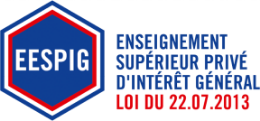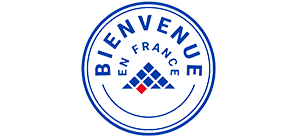Project-based learning: designing a hybrid vehicle using fuel cells and solar energy

Project-based learning is valued at ESTACA because it enables students to use their technical skills on a concrete subject and experience real-life engineering situations. This makes it easier to integrate young graduates into the company and make them operational in project work. Seven fourth-year students are currently working on renewing hybrid vehicles for the company ALTRAN. Their brief: to study how to combine fuel cells with solar panels.
Learning by doing
Project-based teaching is at the heart of ESTACA’s training from the very first year of study. This approach allows students to use their knowledge and technical skills to solve a specific problem for a stated need. It also develops project management, teamwork, management and communication skills… Practicals can take several forms: Initiation to Supervised, Applied Research Work (PIRATE) proposed by Estaca’s research laboratories, Associative Technological Engineering Projects (PITA) proposed by school associations, Academic projects proposed and supervised by the school’s industrial partners, and sometimes taking part in competitions or challenges.
An example of a project on a fuel cell and solar energy vehicle
Seven 4th year students are currently working on a project proposed and supervised by the company ALTRAN entitled: “Feasibility study for hybrid cars: fuel cell and photovoltaic”. Using the Toyota Mirai as a reference, one of the first commercial vehicles with a hydrogen fuel cell, their goal is to develop a solution to combine a solar panel with the cell. Today, hydrogen-powered cars are definitely more ecological but quite expensive. Using solar energy would make it possible to distribute the power needed between the battery and the photovoltaic panel, and lower the purchase price.
In concrete terms, this project will take more than 200 hours, and the group must organize its work and share the missions between the seven students. They have weekly meetings with their two tutors, engineers from Altran, to report on their progress and define the next steps. For technical aspects, they use the modelling skills acquired in class on the MatLab software, but they also develop their ability to work as a team and are confronted with the constraints and decision-making necessarily used in industrial projects. In April, they will defend their project before a professional jury.
A great opportunity to tackle tomorrow's energy issues in an industrial setting
Jean-Luc, a student on the team, explains that, for his part, it was the project theme that attracted him:
”I would like to study “New energies and the environment” in 5th year to work in this field in the automotive industry. This project was therefore a great opportunity to learn about fuel cells and photovoltaic technologies.
Nicolas, for his part, was motivated above all by “working in the real conditions of an engineer, on specifications that could be those of a manufacturer’s project team, and benefiting from the supervision of two ALTRAN engineering tutors.
Today, Jean-Luc and Nicolas realize how lucky they are to be working on this type of project, especially when they see the interest of recruiters when they bring up the subject during their internship interviews!
You are a company and you want to propose a project ?













